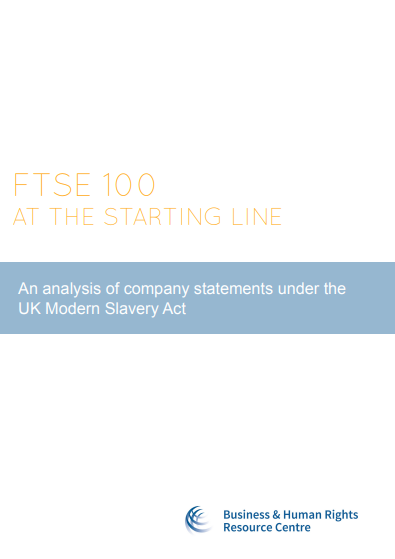Analysis shows only a handful of company statements are meeting the Act’s requirements, majority lack adequate information.
The FTSE 100 companies who have reported under the Modern Slavery Act so far were scored by the Business & Human Rights Resource Centre on their action to eliminate slavery from their operations and supply chains and the extent of their disclosure under the Act. Companies were put into ten tiers (tier one the best performing, ten the worst performing). There was also patchy compliance with the legal requirements of the Act. Only 14 of the 27 statements fully comply with these three requirements.
Analysis shows most of the twenty-seven FTSE100 companies that have reported so far under the UK Modern Slavery Act are missing the opportunity to provide much needed leadership to eradicate forced labour from business operations and supply chains. The majority of company statements demonstrate weak risk assessment and due diligence.

